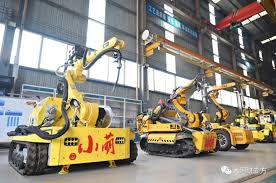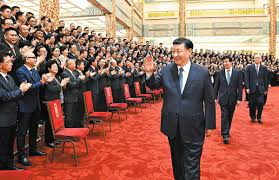Amid tariff pressures, Chinese exporters adapt and expand

Henan Daily
Zhengzhou: As the U.S. ratchets up tariffs on Chinese imports, exporters in central China’s Henan province are feeling the strain, but they are not standing still.
In Xinxiang, a manufacturing hub in the province’s north, firms accustomed to shipping goods across the globe are now navigating a more turbulent trade environment. Yet, rather than retreat, many are pushing outward, chasing new markets and doubling down on innovation.
“Business with the U.S. has definitely gotten tougher,” many company heads said.
For instance, Xinke Protective, a typical export-driven enterprise specializing in protective workwear, exports over 90 percent of its products to Europe and North America. In the first quarter of this year, the company saw revenues fall 30 percent compared to the same period in 2024.
Frestec, a Henan-based maker of refrigerators and freezers, has shipped its products to more than 70 countries and regions in recent years. But 2025 has brought a sharp rise in external uncertainty, according to Yang Qinhe, the company’s deputy general manager, adding new layers of complexity to the company’s overseas market.
Despite growing uncertainty abroad, none of these entrepreneurs showed signs of panic.
“We remain optimistic about orders picking up in the second half of this year,” said Xie Li, chairman assistant of Xinke Protective. “It’s not the first time we’ve weathered something like this.”
When the U.S. slapped tariffs on Chinese goods in 2018, Xinke’s orders dipped, only to recover months later as American clients, after weighing their options, returned. “Our quality and pricing still made sense, even with the added costs,” Xie explained.
To retain those clients, the company’s chairman recently traveled to the U.S. for in-person talks, while other teams are fanning out across the Middle East, South America, and Russia in search of new buyers.
A similar story is unfolding at Weihua Group, a crane manufacturer in Xinxiang. The company has hired more than 300 new salespeople overseas since last October – triple the number it initially targeted. “We can’t control the global situation, but we can be proactive,” said Vice President Ding Haiyang. “Many of our executives are now abroad, negotiating deals.”
The changing trade landscape has only deepened companies’ resolve to broaden their global reach.
Textile firm Xinxiang Chemical Fiber has sent teams to trade fairs in Indonesia and Bulgaria, tailoring its offerings to meet local tastes. “Buyers there have high expectations for fabrics texture, so we developed a customized flat yarn,” said Zhang Jiaqi, deputy general manager of the company. “It’s been very well received.”
Auto parts maker Yubei Steering System (Xinxiang) Co., Ltd is scouting factory sites overseas. “Going global is no longer optional – it’s necessary,” said deputy general manager Zhong Lijie.
Such moves suggest that Henan’s exporters, far from being blindsided, have been bracing for volatility, and preparing alternatives.
“The U.S. isn’t our only market,” one entrepreneur said. “Europe, Southeast Asia, and South America are full of potential. We just didn’t prioritize them before.”
Still, not every solution lies overseas.
China’s government work report this year emphasized the need to address inadequate domestic demand, particularly insufficient consumption, and make domestic demand the main engine and anchor of economic growth.
At Henan Winner Vibrating Equipment Co., Ltd., domestic demand has emerged as a surprising growth engine. The company’s in-house welding robots – once built solely for internal use – caught the attention of local customers after staff began posting videos online. Since hitting the market in 2021, robot sales have jumped nearly 30-fold.
Food manufacturer Henan Aokun is also targeting the Chinese consumer, betting on healthier eating habits. “We’re developing products that are low in sugar and fat but high in fiber,” said general manager Tang Lei. “That’s where the demand is going.”
Yet even as companies innovate and adapt, concerns remain. Several business leaders called for curbing rat-race competition, marked by low quality and low prices. “We need to stop fighting over pennies,” said Xie Li. “Only by working together – and focusing on R&D – can we keep our industries sustainable.”





